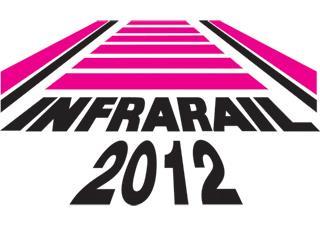
UK: More than 180 companies from the UK and Europe are converging on the National Exhibition Centre in Birmingham on May 1-3 for the ninth Infrarail exhibition organised by Mack Brooks.
The event is due to be opened by Transport Minister Theresa Villiers, who will also be giving a keynote address.
Covering all aspects of the infrastructure supply and maintenance sector, the show has attracted suppliers specialising in track components, structures, maintenance services and machinery, station equipment, signalling and communications, as well as support services.
Several companies will be exhibiting their latest equipment on the display tracks or in a new Yard area organised by the Rail Plant Association. Members of the Rail Alliance will have their own dedicated Hub for networking at the heart of the exhibition hall. Another initiative expected to prove popular is the Recruitment Wall, where exhibitors can publicise vacancies and encourage new recruits to join the rail sector.
Presentations in the seminar theatre will include keynote speeches from TfL London Rail Chief Operating Officer Howard Smith and Network Rail's Managing Director, Investment Projects, Simon Kirby. NR's Peter Dearman will consider the prospects for further electrification.
Investment surge
Spending on the UK's rail infrastructure is running at a high level, despite Europe's current financial economic uncertainty. Despite strong pressure to drive unit costs down, the government remains committed to substantial rail investment to support economic development.
As we report in this issue, projects such as Thameslink, Crossrail and the Great Western route modernisation will account for more than £25bn, on top of £6·5bn for Olympic-related capacity expansion. A similar sum could be spent on High Speed 2, bringing the total to over £50bn.
Network Rail is expected to spend close to £9bn on network enhancements in the final three years of Control Period 4, which runs to March 31 2014, whilst spending on asset renewals is running at around £2·5bn a year.
- Railway Gazette International is Official Media Partner for Infrarail 2012. Come and meet us on Stand L.02

















